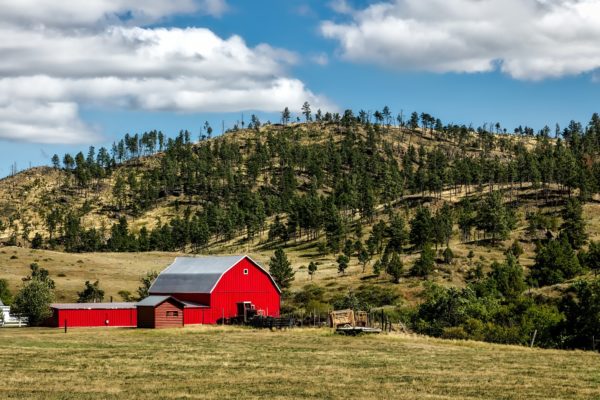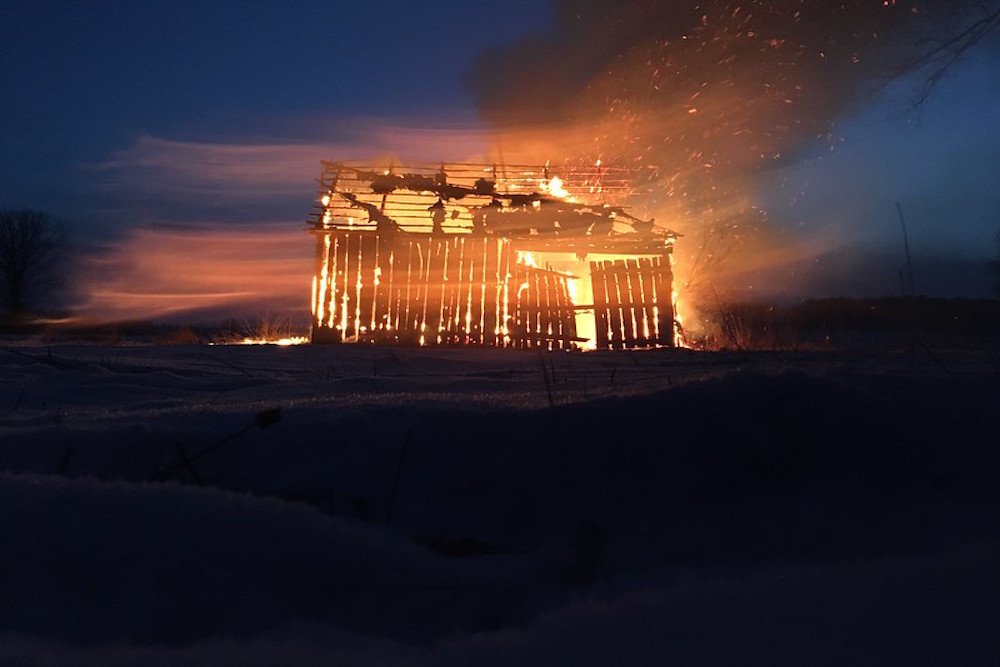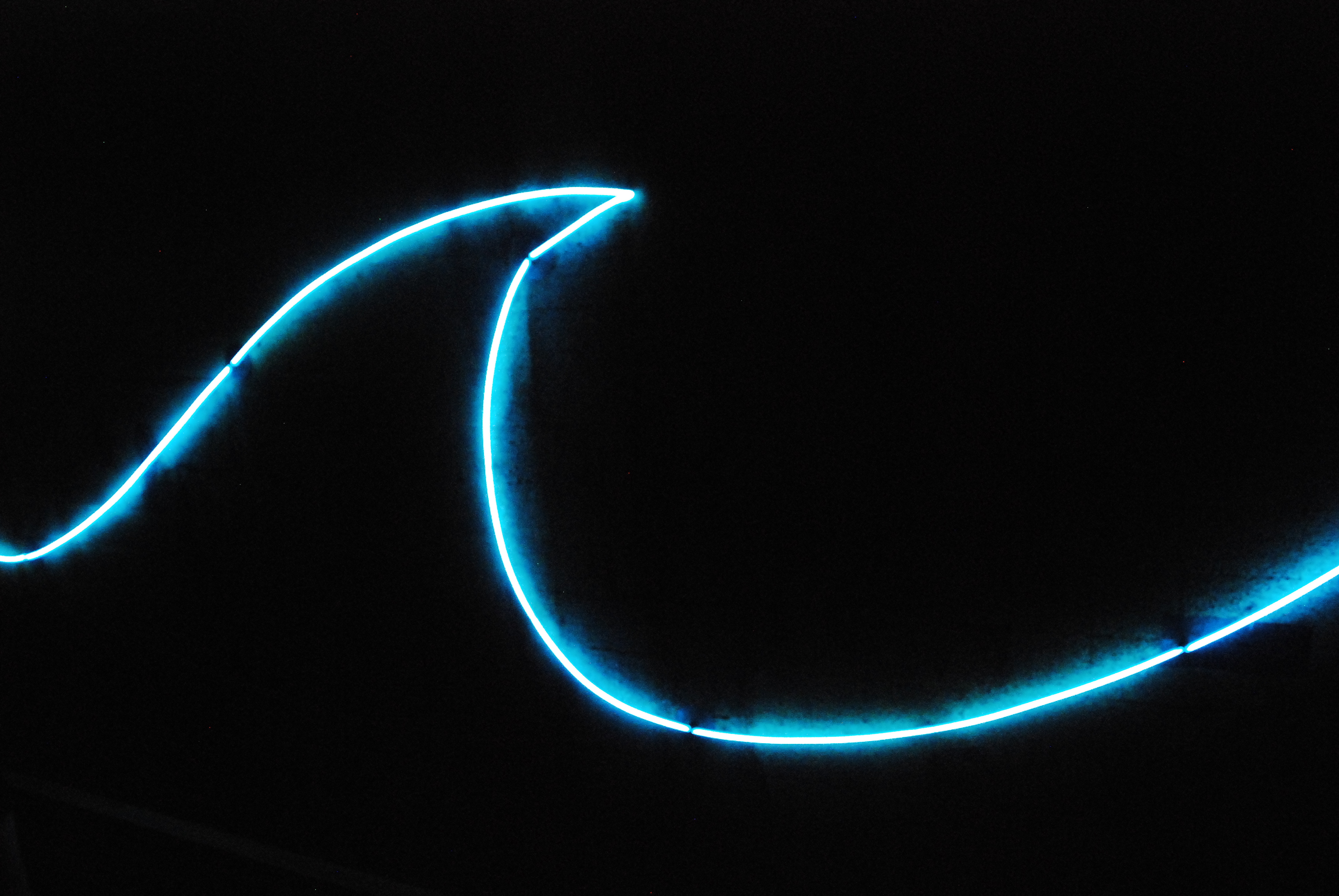Sunshowers
We are spending the week at a faux-functional horseriding and fishing destination for those denizens of cities who don’t know any better. The place is a performance. A bit of theater meant to convince people with soft hands and internet addictions that they belong there, that somewhere buried deep inside them where they keep the knowledge of their common ancestry with bonobos, they are rugged and of a piece with the natural world. The ranch flatters. It tells its visitants that they are who they think they are; they are who they mean to be. America is filled with such spots, places that were once operational but are now, working exclusively on the gasoline of nostalgia, serving only to perpetuate an idea.
The staff at the ranch look at the guests with the dim glow of recognition, the wattage from their smiles meant to stall while they grapple for a name. They lead the horses with leather straps, toss bags of feed into the backs of swollen pickup trucks, and walk with a purpose that is self-aware, histrionic, and practiced.
I’ve been invited to this place despite my job, despite our looming money problems.
My dinner companions — my wife, brother-in-law, their mother who has orchestrated this retreat, and other assorted family — have decide to dine on the patio every night, overlooking the mountains. I prefer the creaky interior of the dining room to the soggy patio under an always rain-soaked awning, but they have decreed the patio to be preferable and I am in no position to negotiate. Despite my distaste for the location, I am always the first one to arrive. They make me wait. They do this on purpose because I am not one of them and they look down on me. They would never say this, of course, but it has never been difficult for me to know what opinions a person thinks they are holding close to their breast.
They have their own rhythms, probably established through habits that are remote to me — fund-raisers, foundations, airport lounges, evenings out — and I am always just a step too late to catch the door, just a bit too early to hear the whole of a conversation. Under normal circumstances I would text or call my fellow diners upon arrival, but none of our phones work in the Adirondacks. Even the clocks are somehow wrong and after a few hours we all begin leaving the phones in our rooms, not even plugged in as the full battery would just remind us of all the things our devices no longer do. None of us are used to the sovereignty. We luxuriate in it as if it were a bubble bath. As we wander around the grounds of the mountain resort in a lather, we run into one another, stunned but acting pleased to be in each other’s company.
* i introduce her
I see the girl before I meet her. She is at the bar reading off a list of drinks for a table she is attending. She acts oblivious to how much of the room the shard of her frame attracts.
The bartender, short and thick as a callus, has his own agenda; “I don’t believe that for a second,” he tells her, ignoring her drink order. “Every seventeen year-old here says she’s got a boyfriend, but they never do.”
The bartender’s smile is a crooked river swollen by the rain. He is angling but the girl knows how to position herself with a smile, a word, a gesture. She pushes off the bar like she is shoving off the side of a pool into the deep end. She leaves with a wave.
The bartender is sure to make some young girl’s life miserable with an unwanted pregnancy or a too quick ascent into the stratospheres of adulthood, but this one, the seventeen year-old with the alleged beau, wasn’t to be the victim. He wasn’t really the one I was worried about anyway.
The real problems were the ones who didn’t talk about it. The ones who weren’t comfortable revealing their lustful hearts in public. The ones so buried under shame that they would never be anything but polite with those for whom they longed. The real ogres are the ones who are complete gentlemen. Until they aren’t.
I talk to the girl for the first time on the patio on the first night. It is right after I meet Clark, who is the one who introduces me to her.
As I wait on the patio and I stare out over the mountains, I think about my wife and son. I wonder what would happen were one of us to slip down the side of the mountain or be mauled to death by a bobcat. I think about what might become of our triumvirate were one of the three of us to be disappeared. My wife and son bereft, but strong; my wife and I suicidal and estranged; my son and I lost.
While I think these thoughts I feel Clark’s too-familiar hand on my shoulder. Clark’s job seems strangely amorphous and his position strikes me as mainly ceremonial; an honorary member of the management team with no ostensible power, and yet tremendous influence. He smiles at me, his face cracked at the eyes by the sun and filled with a tender grit. He is always accompanied by a cologne of bug spray and sweat. His hat slips down his forehead and covers his eyes.
“How are you enjoying yourself?” he asks me as if we are friends. As if we have known one another for years.
“Fine. Just fine,” I tell him.
“I haven’t seen you do very much,” he tells me, his voice loud and unregulated. His eyes pore over my fleshy body and he evaluates and categorizes me as if I were a potential hire, lying on my resume. He is ruddy and all capable sinew, despite his clearly advanced age.
“Haven’t had much time,” I tell him, beginning to see how this might go. We’d been led around from the moment we’d spilled from the black car. The staff had surrounded us when we arrived, unencumbering us so we could infest. A woman who looked like a librarian advertised all the myriad activities to us; fly fishing lessons in Lake Granby, photography-hike up Mt. Meeker, horse riding lessons at the ranch. Each excursion described seemed more idyllic than the previous, and each one seemed less and less appealing. My conversation with Clark made it clear that we had been monitored during this orientation, our capabilities measured, our proclivities assumed.
“Make sure you get signed up for the white water rafting,” Clark sings.
“Of course I will,” I say.
I sit through his line of questioning as my eyes dart around, looking for my belated party.
“We must have the same barber,” he says, lifting his hat and running his hand over the stubble of his shaved skull and then pointing at my own mostly hairless pate. He says it in a practiced way that makes me wonder if he always finds the baldest guy at the resort to harass. I wait politely and try to smile as he runs through a string of bald jokes meant to link us.
The young waitress who the bartender was flirting with has begun slipping around and in between us, setting up the ten-top that will be our table.
“And I assume you’ve met Emily,” he says and holds his hand out like he is ushering me into his car, or his living room. “Or as I call her, ‘Boom Boom.’”
He smiles and gives me a crass, full-bodied wink.
“She needed a nickname and the first day she walked in, I just thought it fit…” he pauses for effect and elbows me in the ribs as he adds the punchline, “… for some reason.”
I look to see if she has heard him.
“I kinda like it,” Emily says to me and him both as she glides past us holding a tray full of drinks, the beverages scheduled for a table made up of well-groomed frowns.
“She reminds me of a girl I met when I was in the service,” Clark says as we watch her try to match diner with their alcohol.
I wonder where he was stationed, but I can’t bring myself to ask for fear of giving him reason to boast, for fear that he has a great war to tell me he helped to win. I make the assumption that he spent his twenties stationed in Europe but without seeing combat, spending his time instead falling in love with some burlesque dancer who broke his heart and for whom he has searched for ever after — sifting through each successive generation like a panner slipping his hands through the sand hoping to find gold.
At dinner, Emily buzzes from one table to another forgetting to bring bread or appropriate silverware, screwing up orders and spilling water on guests. All of her foibles are excused, however. The thought that she might be scolded or held accountable seems never to occur to her. She is a hummingbird, fleeting and random, visiting and then disappearing in the same breath.
* what she looks like to me
The next morning I watch her as she serves us breakfast. Emily puts old slang into use — saying the hungover patrons have a “case of the zings,” and calling all compliments “horsefeathers” — employing the out of fashion phrases into use like she has only just learned them. And perhaps she has. Her clothes drape off her. Like a flag lazing in the still heat. She is related to farmers. She believes that despite the negativity Monsanto receives in the press that they are necessary and she doesn’t think about it any further than that. It is enough for her to know that uncles and cousins rely on the company and its products.
When she leaves, the coffee pot perilous in her hand, she doesn’t turn, she twirls.
Slender and egret-like, Emily wears a dress that is low cut in the front with a mere few strings in the back. Her tattoos are small and plentiful and are lined up like bread crumb trails that lead to the even more sensual parts of her. Lines cut across her bicep and thigh, seeming to bi- and tri-furcate her body into pieces like a butcher’s chart advertising the cuts of meat available to customers. I have an image of Clark being the one to ink her. She knows why she was hired.
Despite her beauty they work her hard. I know just how her skin cracks from the dishwashing fluid, how her hands itch from the chemicals, how the pinks swollen across the backs of her hands are loud and ugly. I know that one irritated spot vibrating and elusive, deep within the palm, refusing to be found, daring to be scratched. I know just how her left side aches from shouldering drinks, how she tries to work the knots out her shoulder every night.
* i introduce the man and his wife
Emily is unlike the women I usually fall for. Were she my type, I would have been just as helpless as the married man at the other table. The man is tall, with curly hair, Caucasian in that quintessential way where his facial growth accents his features, his apathy and laziness somehow benefiting him, making him more attractive. Even his leisure clothes are expensive. The man is surrounded by people who obsessively follow sports, desperate to be “In The Know,” to have something to discuss in great detail that is not themselves. His eyes stare out from under a meticulously tattered baseball cap which somehow doesn’t clash or invalidate the effect of his expensive shorts, fleece, and trendy sandals. He is complete and the world belongs to him. I can tell just by looking at him. Just by the way he looks at the waitress, by the way he refrains from staring down her shirt when she bends over to take the menus from him and from his wife and child. I can see him congratulating himself on a job well done.
Such restraint, he must be telling himself. Such chivalry. To allow her some shred of privacy. Though he wants her, of course. Every pierced part of her. The tongue with its stud gleaming like the last light left on in an otherwise abandoned dormitory; the innermost cartilage fold of her left ear bangled with a ring, her body veneered with expensive tattoos and cheap jewelry; her voice strained by cigarette and marijuana smoke; her long blond hair that reaches the middle of her back even when it is flipped backwards off the top of her head like some great lion’s mane; even the bad breath, the acne, the poor grammar.
* i describe the horse corral
The women who work at the horse corral are wide, dark, and rubenesque, their bottoms snug against the denim that they wear. They hoist saddles onto horses with sounds women usually keep out of reach but for a select few. I am told there are no male ranch hands anymore, the jobs going to these capable women instead.
They are gruff, but also beautiful. Little bits of perspiration accumulate on their upper lips. They move with vigor and purpose. They are poorly drawn tableaus walked straight off of murals and into the dust. Despite the heat, their flannel shirts are buttoned to the top button, defiant and almost delusional. They live in tiny bullet-shaped trailers, stowed behind the corral like unpaired shoes tossed into a closet and on top of one another. I wonder how many ranch hands occupy each dwelling.
The horses are mostly old, overweight, and discarded from other ranches, but they are still majestic. Their lethargy reads as dignity and they snort at the children who are perched on their backs for photos. The horses accept the food offered them like a wronged lover accepting the money she is owed. The dull sound of hooves on the thick dirt is strangely tantalizing in its repetition and its timbre. I have the distinct feeling that I want the popping sound of trotting on the inside of my mouth.
“They are impressive,” I say to one of the ranch hands as my child is led around on the back of a horse with a face that looks sour and reluctant. I choose my words carefully. “They are like machines come to life.”
She does not react. It is as if she does not speak the same language as me and for a moment I wonder if she does.
“Would you like to take a picture,” she asks finally as if there is nothing else that might occur to her to say.
* what emily sounds like to me
“I appreciate you,” Emily says to everyone when she walks away, as if she looks forward to returning.
“Much obliged,” he says archly, anachronistically, and not meaning it.
She does not know how people talk, I realize. She has not met enough of them. She has always retreated to the outdoors, because there are still places where there is no entry fee, where the wild undulates beneath one’s feet and doesn’t ask a tax. When she is brought to the movie theater, a diner, or even the mall, I realize, she feels like there is a clock ticking down to the moment her poverty will be discovered. She has always preferred to be alone and outdoors where it is safe, where she cannot be bothered.
I get lunch alone, separated from my travel companions. They don’t know that I have arrived in the dining hall and that I watch them from across the room as they whisper to one another.
* i describe the man’s wife
The man’s wife orders the staff around like she has never been obedient, like she began her life telling people to serve and had never considered acting any other way. She hands her children to childcare workers with an expertise most reserve for athletics and card tricks.
The man earned her the same way he earned everything else in his life, his career and achievements and possessions, by being proud and comfortable with his position in the world. He earned her, perfect once, when she was young and without flaws, by buying-in totally, by synthesizing his inner life with the world at large until there was no difference between what it could give him and what he wanted from it.
* what emily wants
She has applied to school, I hear her tell people. She has even applied to a few out of state places too, she insists, as if that makes it more valid. She says it to distinguish herself from the peers of hers who have also dropped out of high school and who have also not yet gotten their GEDs, and who also work in similarly tourist-supported places, serving fulfillment of one kind or another to out-of-towners.
Even as she describes her future plans though, to supervisors, to guests, to co-workers, she gets the feeling that she is being pitied. It is the same feeling she had when she was a child and, after wowing a grandparent with her knowledge of the word “hieroglyphics,” tried to impress other adults, only to realize that they were not amazed, but merely charmed.
She has not applied to school, of course. She wouldn’t know where to start and she expects that one day college will come find her, the opportunity unfurling itself before her like the red carpets on the television shows she likes to watch. In the meantime, she thinks about what she might study and decides Biology since she is pretty much a nature trail guide already, as she often has to explain to the guests what indigenous bugs and plants are beautiful but poisonous and which ones are merely beautiful.
* sex
Emily brings with her a repertoire gained from under the stars and in backseats with boys, barely old enough to drive, a repertoire acquired by acting impish and pretending to often be confused. I know just what kind of cheap, oil stinking car those boys drove, with fast food crushed into the seats and exhaust systems rattling beneath. Cars with dashboards lit up with little red and yellow icons that the drivers could never raise the money to address and so are ignored.
She is far from competent, the man is almost delighted to note, but she is adequate. Her lovemaking is raw and honest in a way that the man’s wife’s is not. At the beginning perhaps it was like that. The man cannot quite remember. Anymore his wife must be asphyxiated, choked, dominated in a way that concentrates the euphoria of intercourse. At first it was a thrill for him too, but the routine has somehow made it feel contrived and boring. With the girl it is not like that. It is honest and feral. He can smell her rancid breath and her unwashed privates and armpits. It does not occur to her to try to mask these things.
In the pool shed, past dark and among the chemicals and plastic tools, they reveal themselves to each other. They present what they want, what they have developed with other people, what they have inherited, and what they haven’t shared with another soul. They are like two musicians meeting and letting their instruments speak for them. He smiles and inhales, kissing her warm and sunburnt skin. She admits him, relishing the letting.
* will you remember me?
At dinner she recites the specials. She is aloof, polite, formal. She is kind to the man’s wife and child, but not too kind. She asks about their food, but is curt when his wife asks her to take the food back, just like she would were she not sleeping with the woman’s husband. As I watch her maneuver the husband, wife, and their toddler-aged daughter, I realize that she has done this before. She is the expert, not him.
“Will you remember me in five years?” he asks her the next time they are alone.
“Will you remember me next week?” she asks.
“We might be back next year.”
“Maybe by then you’ll be single,” Emily says.
“Who knows,” he says, gruff, annoyed.
They are beyond being the free agents of love, each of their little grooming rituals now already taken for granted by the other, he grateful for the way she applies mascara, she charmed by the smell of his pungent, expensive cologne.
He doesn’t acknowledge her when he and his wife pass her on the way to drop their daughter off at the resort day care. They continue silently along the dirt path to the cabin where teen girl caretakers lead the children in rituals of abandonment. They craft birdfeeders and paint rocks. The children do not long for their parents, but instead focus on the tasks before them like they are little leatherworkers and machinists, as if their menial jobs will conjure their parents if done correctly.
The man’s wife reaches her hands out, full of red headed baby, and indicates her exit by announcing, “We’ll be back when you close.” The man’s wife is twisted and sour, like once-bright fruit left in the sun. She has the look of a person who feels she has been swindled. I can tell. This vacation has been long earned. And the man complies, leaving the child without so much as a word. Gushing over the girl, as he normally would, might make his wife feel jealous or guilty. He turns away from the child, whom he adores. He walks away and tries to ignore her wailing.
* again at dinner
The patio is closed off because a large group has reserved it, though when I walk past it seems they occupy only a quarter of it. My travel companions and I are in the dining room like I originally suggested, but I am not happy about it. I feel guilty about getting what I want, guilty that the food I cannot afford is being paid for by a patron, and that my desire for where to sit is being satisfied.
I see the woman who cleans our room emptying a bucket into a utility sink. She makes me uncomfortable; her thick wrists and skin the color of my wife’s too sweet coffee. Emily is not there and neither are the man and his wife. I imagine them off somewhere enjoying themselves, Emily occupying the role of big sister to the young child, their faces all a warped smear of joy. I know this can never be the case.
I am asked about the duck for a second time. I nod, hoping it is the correct answer. I can see recognition in the face of our waiter, a thin young man with dirt around his fingernails, with a small stain just above the belt line of his white, button-down shirt. I hate him.
My travel companions ask me when school will begin again, if I ever keep in touch with my students, what I think about recent legislation regarding curriculum. My conversation acquits itself, I think, and soon they go back to speaking with each other about what really interests them, what they really want to talk about.
* the wife goes into town
“I think I might go to town to shop,” the man’s wife says the next morning.
The man cannot believe his luck, but he knows he cannot reveal his joy.
The man’s wife has met several other women, one of whom is from near where they live. The women agree to engage in the pantomime that this coincidence is a miracle, as if pockets of affluence and opportunity are not clustered and concentrated. As if finding people from your income group at a place only accessible to your income group is something plump with meaning, something suggesting destiny. The women feel like they should become friends. All their smiles are twisted at the end in the same way and pointed at one another in some polite form of a standoff, their weapons beautiful but no less deadly than those of a cowboy in an old film. Mutually Assured Destruction lurks in their laughs. The women lob pithy remarks at one another, each compliment a threat dressed in couture fashion. They all lay hands on one another in acts that approximate empathy, but are too frigid and practiced to be the real thing.
“How much will you spend?” he asks.
“Don’t be like that,” the man’s wife says and scowls. “We are supposed to be on vacation. It’s not like you didn’t buy those golf clubs we had to lug through the airport.”
Though he knew he was getting what he wanted, he was disappointed that his wife was not more suspicious of his play. There was no semblance of the woman he had met when they were young, the jealous one who threatened his ex, the devoted one who nursed him back to health from hangovers even on occasions when he had been the only one drinking.
The man and the girl spend all day together, trying to avoid other people and then trying to ascertain whether or not anyone knows their secret. In the man’s cabin they make love, but the man is disappointed that the cabin seems to belong to her. He had wanted her for himself, on his own territory, among his expensive things and his stack of books — worn copies of books he wanted people to know he read, books by Stephen Pinker, Howard Bloom, and James Salter. But the girl is so familiar with the cabin that she adjusts the windows herself, doesn’t fumble with blinds like he does, and leaps into bed with a squeal as if they are pretending to be in her home and not his.
The old springs of the bed groan beneath them like fresh snow being crushed underfoot for the first time.
* rain
It is raining when they leave the room, but the sun is out. They don’t talk about it. He looks up at the sky, the sun a piece of licked candy stuck to the construction paper blue. He wrinkles his face against the raindrops and Emily runs toward the dining cabin to start her shift. She squeals and holds her hands above her head uselessly, fingers akimbo. Her jean shorts are too big, they are baggy and vaguely masculine. Her legs look like strands dangling beneath her. Her shirt is tight and white. She is happy.
* endings
By the end of the week it seems the secret is out. The man’s wife lounges in the hot tub while the man and the girl walk with one another near the lake. She has gotten time away from her duties to talk to him.
“Did you say you would or wouldn’t remember me?” she asks him.
Later, as the man packs up the cab to leave, the wife strokes the girl’s hair and coos. She is grateful the man has had this distraction.
As they pull away in their late model luxury car, the engine barely a whisper against the creaking sound of cicadas, I sit in the dining room, again waiting for my companions. My brother-in-law has mentioned, feverishly, conspiratorially, that he has slept with one of the women on the staff and I wonder which one. I wonder if it is the woman who cleans our room, or someone from the day care. I wonder if the girl I have slept with will remember me. I wonder if we will be back.
Clark and the bartender sit at the bar while Emily makes her own drinks and they tease her, trying to guess her weight, overestimating dramatically. They fail to get a reaction from her.
I drink flat club soda and stare at her reflection in the mirror behind the bar as she places her drinks on a tray and holds a smirk up between her and the two men. She twirls away with a tray of drinks that I am sure are all wrong.
“Could I get another one of these?” I ask her as she walks past.
“You bet” she says, placing a vodka tonic down before me.
I count the singles I have in my wallet, wondering how the man made his first entreaty, wondering how it all worked.
“Are you a guest?” she wonders.
“Not for long,” I tell her, tucking the few bills I have back into my pocket.
“Well, ta ta,” she says and spins back toward the kitchen buoyed by the sweet smell of her shampoo and lit by the warm glow of her smile.
END
Matt Meade is a stay-at-home parent, a sit-in-front-of-the-computer freelancer, and a once-upon-a-time problem drinker. His fiction has appeared in The Sun Magazine, Storyscape, Maudlin House, and elsewhere. Some of his work, as well as the one good picture he has of himself, can be found at matthewthomasmeade.com.




